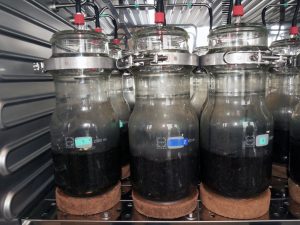
RUSTICA contributes to the expected impacts set out in the Work Programme “Food security, sustainable agriculture and forestry, marine, maritime and inland water research and the bio-economy” under the call “Rural Renaissance”, and more specifically the topic “CE-RUR-08-2020: Closing nutrient cycles” (Table 2.1). The RUSTICA proposal builds on the overall objective of the “Rural Renaissance” call to organise sustainable food and non-food value chains under changing conditions, and focusses specifically on combining end-user engagement and technological developments to implement circular economy principles in nutrient recycling in agricultural regions, with high replication potential.
Throughout its history, agriculture has been making use of organic and renewable sources of nutrients to improve crop yields, mostly in the form of manure and crop residues which were returned to the field. Only since the last 100 years with the invention of artificially produced fertilisers (e.g. ammonium nitrate, ammonium phosphate…) organic fertiliser products have become a minority in today’s mainstream farming practices. Due to their very specific composition and general, low-cost availability, these mineral fertilisers lead to an explosive increase in crop production yields and allowed us to produce more food on less space. But for many regions, the preferred use of imported mineral fertilisers (extraction of nitrogen from air using the Haber-Bosch process or mining of phosphate rock in Morocco and China and potash rock in Russia and Belarus) over manure and other organic fertilisers also lead to regional nutrient excesses with associated environmental and economic costs. In a way, it is absurd a farmer now often has to pay to e.g. convert the NH4 in manure to N2 in a treatment process, and pay a second time to buy this nitrogen back in the form of mineral fertilisers (produced by converting N2 to NH4). The RUSTICA process will provide a solution that is able to provide agriculture with bio-based fertilisers products with the same advantages as mineral fertilisers (well-defined composition and release rates), but sourced from locally available waste streams, and tailored to the local soil properties and crops for long-term soil fertility and plant health.

